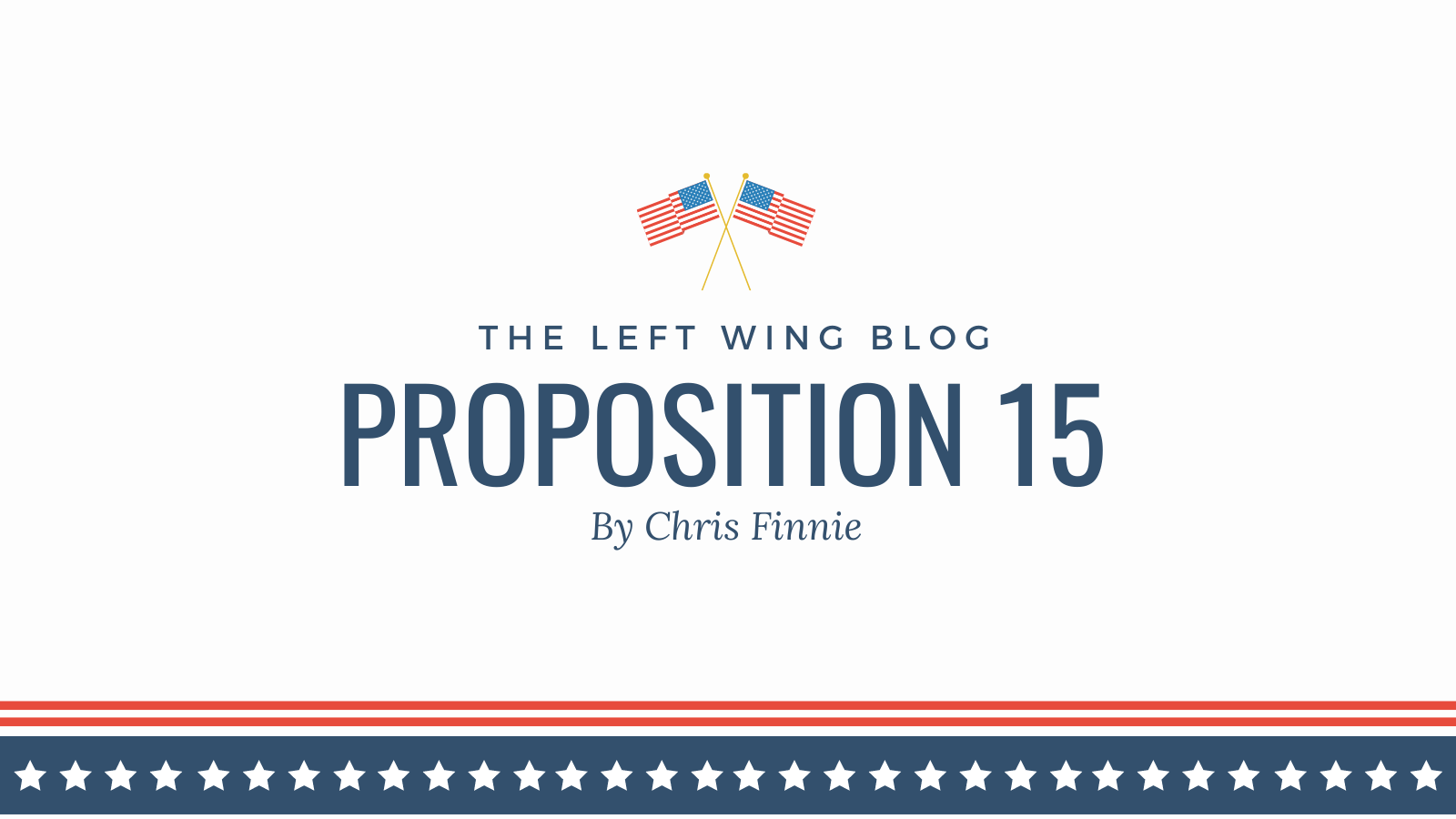Opinion: The Truth About Proposition 15
By Chris Finnie
When proposition 13 was on the ballot in 1978, I hadn’t voted in that many elections. In other words, I wasn’t as cynical as I am now. I saw the commercials about how it would help older people keep their houses and thought that was a good idea. So, I voted for it.
The good news, it really did help older people keep their homes. The bad news is that it did a lot of damage to our state budget. The big-money interests that funded it and advertised it didn’t care if grandma was thrown into the street. But they DID care about their own property taxes, because those were a lot bigger than grandmas.
What I didn’t know in 1978 is that commercial real estate doesn’t turn over as often as residential real estate. A lot of it is leased and the lessor doesn’t sell it when a big tenant moves out, they just lease it again and change the signs. Even when one company buys another, any real estate involved is often an asset that simply moves with the company. The real estate doesn’t technically get sold. The company does. So, the real estate isn’t re-appraised. Because of this, property taxes on commercial real estate have stayed absurdly low under proposition 13. I probably pay four times as much on my house as Google does on their Googleplex, as a percentage of the real value.
The result of all this was that state revenues dropped a lot. Money dried up to pay for schools, colleges, and universities. There was less to pay for Cal Fire and state parks. And the state raised other taxes to try to dig the budget out of the hole. Those taxes were paid—you guessed it—largely by you and me.
The “Split Roll”
For years, people have been talking about taxing residential and commercial properties differently to make up for the inequality caused by proposition 13. Now there’s finally a proposition to do just that: Proposition 15. Of course the corporations hate it and are funding commercials and glossy mailers again.
But, as in 1978, they hide who’s really paying for them and why. And they’re telling a lot of lies.
Proposition 15 actually cuts small business taxes. It will have no impact on homeowners, renters, small businesses, or agriculture. They’re specifically all exempt from the changes. It also exempts all home-based businesses, which accounts for more than half of all California small businesses
It won’t force my brother, for example, to shut down the family restaurant because that commercial property is worth less than $3 million, and is therefore exempt. Because the new taxes are phased in over three years, businesses that rent will have time to look for better alternatives if rents go up.
If nothing else, think about it this way: when wealthy property owners don’t pay their share, the burden falls on us. Since proposition 13 passed in 1978, the residential share of property taxes has skyrocketed from 55% to 72% while the share of property taxes paid by nonresidential commercial property has declined. Other fees and taxes have increased from 28% of local government’s own revenues in 1978 to 51% of local revenues today.
Aren’t you tired of paying taxes for wealthy corporations?
Vote YES on Proposition 15
Proposition 15 will reclaim billions every year for our schools, community colleges, and essential local services, so that all 58 counties in California can invest in things like:
- Smaller class sizes
- Health care services
- Fighting homelessness
- Firefighters and their equipment
- Safe drinking water
- Preparing for future disasters such as wildfires, pandemics, or earthquakes
Don’t believe the lies. Make wealthy corporations pay their fair share. Vote YES on proposition 15.
Chris Finnie has lived in the Santa Cruz Mountains for 25 years. She’s worked as a marketing copywriter for more than 35 years. And has been a local, state, and national political activist for 17 years. She has contributed articles and columns to several local newspapers.
The San Lorenzo Valley Post is your essential guide to life in the Santa Cruz Mountains. We're dedicated to delivering the latest news, events, and stories that matter to our community. From local government to schools, from environmental issues to the arts, we're committed to providing comprehensive and unbiased coverage. We believe in the power of community journalism and strive to be a platform for diverse voices.




